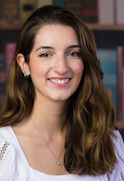
|
|
Lauren Royer received her P.S.M. from Temple University studying Bioinnovation and Bioinformatics after completing her B.S. in biology at Penn State University. She is an informatics scientist at MOBILion Systems who leverages Skyline’s flexible proteomics and small molecule tools to develop workflows and analyze data across various applications. She has presented and contributed to multiple conference presentations on mobility aligned fragmentation and ion mobility data analysis and guides the development and validation of MOBILion’s ever-growing list of informatics workflows.
|
Lipidomics analysis often requires MS/MS analysis for confident identification, but fragmentation alone is often insufficient for differentiating various isomeric species. This is especially true when chromatographic separation is lacking. Skyline’s ion mobility filtering workflow provides an excellent tool to detect and monitor high resolution ion mobility (HRIM) separated lipid isomers by extracting fragmentation spectra based on the lipid’s measured collision cross section (CCS).
Read More
We will describe the advantages to extracting mobility aligned fragments through Skyline, including library creation, fragment validation and visualization, and setting up a full targeted workflow. This workflow will be illustrated with a MOBIE HRIM system (MOBILion Systems) coupled to a 6546 Q-TOF (Agilent Technologies) using data generated from the NIST SRM 1950 plasma standard as an exemplary complex lipidomics mixture. This methodology enabled fragments of 133 lipid targets in positive mode and 100 in negative mode to be extracted for identification based on CCS database values.
Read Less
[
PDF]
